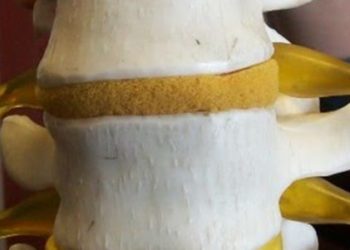Post-cardiac arrest outcomes are similar following targeted hypercapnia versus normocapnia
1. In this randomized controlled trial, for patients in a coma post-cardiac arrest, neurologic outcomes were similar at six months between those receiving targeted mild hypercapnia compared to normocapnia.
2. Mortality rates were also comparable at six months between the mild hypercapnia and normocapnia groups.
Evidence Rating Level: 1 (Excellent)
Study Rundown: Hypoxic-ischemic encephalopathy results from brain hypoxia during cardiac arrest and hypoperfusion after return of spontaneous circulation. For patients with coma who have been resuscitated following out-of-hospital cardiac arrest, the risk of this injury and subsequent poor neurologic outcomes is especially high. Although current guidelines recommend targeting normocapnia for these patients, mild hypercapnia has been reported to increase cerebral blood flow and potentially improve neurologic recovery. Randomized trials investigating this hypothesis are still lacking. The current study was an international open-label randomized trial where adults in a coma after resuscitated out-of-hospital cardiac arrest were assigned to targeted hypercapnia or normocapnia. At six months, favorable neurologic outcome, assessed using the Glasgow Outcome Scale-Extended (GOS-E), was reported at similar rates between the two groups. Mortality rates within six months were also comparable. These similarities were consistent in prespecified subgroups. Study limitations included the open-label design, the hypercapnic partial pressure of CO2 (PaCO2) of most patients at baseline, the exclusion of unwitnessed arrests, and a small number (7.6%) of patients lost to follow-up. These results demonstrated that for patients with coma after resuscitated out-of-hospital cardiac arrest, a mild hypercapnic target did not result in superior neurologic outcomes.
Click to read the study in NEJM
In-Depth [randomized controlled trial]: This study was an open-label, randomized controlled trial to investigate the effect of targeted mild hypercapnia for patients with coma following resuscitated out-of-hospital cardiac arrest compared to targeted normocapnia (standard of care). Adult patients hospitalized with coma who had previously been resuscitated after out-of-hospital cardiac arrest from a presumed cardiac or unknown cause were eligible for inclusion. Exclusion criteria included a gap from return of spontaneous circulation to screening of 180 minutes or longer and unwitnessed cardiac arrest. Overall, 1,700 patients were randomized to targeted mild hypercapnia (PaCO2 50 to 55mgHg) or targeted normocapnia (PaCO2 35 to 45mmHg) for 24 hours. The primary study outcome was a favorable neurologic outcome, defined as a GOS-E score of five or greater at six months. Secondary outcomes included death within six months, disability, and quality of life. By six months, a favorable neurologic outcome was reported in 43.5% of patients in the mild-hypercapnia group and 44.6% in the normocapnia group (relative risk [RR], 0.98; 95% Confidence Interval [CI], 0.87 to 1.11; p=0.76). The mortality rate at six months was 48.2% of patients in the mild-hypercapnia group and 45.9% in the normocapnia group (RR, 1.05; 95% CI, 0.94 to 1.16). Disability and quality of life outcomes were also comparable between the two groups. These results demonstrated that among comatose adult patients after resuscitated out-of-hospital cardiac arrest, targeted mild hypercapnia did not result in better neurologic outcomes compared to standard-of-care normocapnia.
Image: PD
©2023 2 Minute Medicine, Inc. All rights reserved. No works may be reproduced without expressed written consent from 2 Minute Medicine, Inc. Inquire about licensing here. No article should be construed as medical advice and is not intended as such by the authors or by 2 Minute Medicine, Inc.









